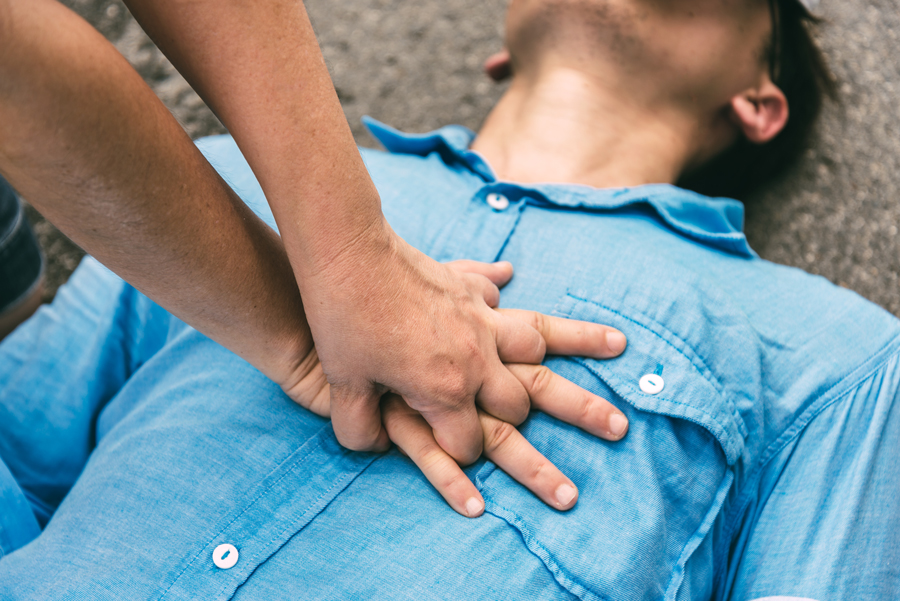The Only Bad CPR Is No CPR

Immediate bystander cardiopulmonary resuscitation (CPR) is the single most important factor in the survival of cardiac arrest. Without it, the chances of EMS saving the victims life decrease with every minute. Saving lives Is in your hands.
Immediate bystander cardiopulmonary resuscitation (CPR) is the single most important factor in the survival of cardiac arrest. Without it, the chances of EMS saving a victim's life decrease with every minute. Saving lives Is in your hands.

Facts About Cardiac Arrest
- Most sudden cardiac arrests occur at home and are witnessed by friends and family.
- Most sudden cardiac arrests don't receive life-saving CPR until emergency medical services (EMS) arrive.
- 911 dispatchers can help guide bystanders in CPR.
- Automatic external defibrillators (AED) can save lives if applied as soon as possible after a cardiac arrest. The defibrillators provide simple verbal guidance and direction in their use. Thousands of lives have been saved with AEDs by untrained bystanders.
Take Action With CPR
Hands-only CPR uses continuous cardiac compressions without rescue breathing. If someone collapses and you cannot wake them up:- Call 911 and place the dispatcher on speakerphone.
- Ask if there is a defibrillator nearby.
- Start CPR in the center of the chest, pushing down 2 inches.
- Push down and release to the beat of the song "Staying Alive."


